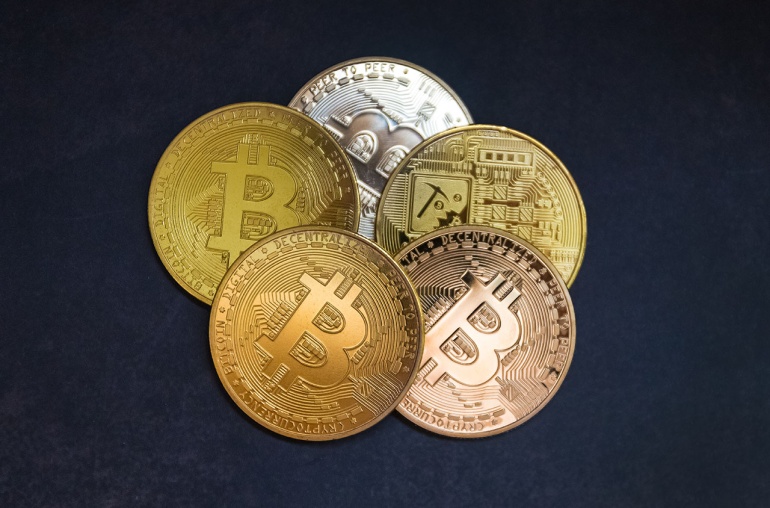The cryptocurrency world is a vast and expansive space. It keeps expanding each day, with more new cryptocurrencies, blockchain networks, and innovations shaping the future. With so much happening in the cryptocurrency industry, it can be overwhelming to understand everything. Taking things one step at a time can help you digest all the information in a comprehensible manner.
Today’s guide is called “What is a smart contract and how does it work?”
We have created this post to help the uninitiated, i.e., you, get a basic understanding of what smart contracts are and how they operate. Knowledge is a crucial factor for success in any capacity within the cryptocurrency world, and here’s your chance to begin understanding an essential part of it.
What Is A Smart Contract?
A smart contract is a digital contract stored on a blockchain network. It is called a smart contract for a reason. These digitized agreements automatically execute the contract when the agreement terms between the parties signing the contract are met. The terms of completion for the smart contract are already written into the lines of code for the contract.
The code and the agreement within the smart contract exist on a decentralized blockchain network. All the transactions are traceable and irreversible, ensuring no discrepancies. Smart contracts allow more trustworthy transactions and agreements to be carried out between disparate parties – all without the need of a middleman or central authority enforcing the terms of the contract.
How Does A Smart Contract Work?
Smart contracts work by following straightforward “If/when … then…” statements written into the code on a blockchain network. These digital agreements only execute the instructions given to them automatically. Before two parties agree to the terms, a smart contract’s assets and terms are written into code and added to a blockchain network.
The contract is then distributed and copied several times between the nodes operating on the platform. When one party meets the terms of the contract, they trigger the completion, automatically executing the task that was pre-programmed into the smart contract. The program then checks the implementation of commitments.
An example would be a much easier way for you to understand. Suppose that Anthony has asked Juan to repair his car for $200. In that case, Anthony is the buyer and Juan is the seller in the contract. The agreement is that Anthony will pay Juan $200 under the condition that Juan performs repairs on Anthony’s car.
In a smart contract setting, Anthony will deposit the $200, but it will be held by the program until Juan completes the repairs. Once Juan addresses the repairs and does an adequate job of it, it will automatically trigger the contract, and the $200 deposited by Anthony will transfer to Juan. There is no need for a middleman or central authority to facilitate the transaction. It will all be carried out by itself once the terms of the contract are met by both parties.
How Did Smart Contracts Begin?
Blockchain technology is the primary realm where smart contracts exist today. However, the concept of smart contracts goes back as far as 1994.
Nick Szabo, an American computer scientist, defined smart contracts as, “A smart contract is a computerized transaction protocol that executes the terms of a contract. The general objectives of smart contract design are to satisfy common contractual conditions (such as payment terms, liens, confidentiality, and even enforcement), minimize exceptions, both malicious and accidental, and minimize the need for trusted intermediaries. Related economic goals include lowering fraud loss, arbitration and enforcement costs, and other transaction costs.”
Nick defined the main principles of how smart contracts would work, but there was no appropriate environment to implement the innovative ideas. The advent of cryptocurrencies and blockchain technology has led to the first possible use case for smart contracts. It was adopted initially by the Ethereum blockchain network, and its use cases extend far beyond cryptocurrencies now.
What Are The Possible Uses Of Smart Contracts Today Besides Cryptocurrency?
Smart contracts are already in use across various industries today. The possibilities with a self-executing contract that ensures transparency and trust are virtually endless. Smart contracts can be used for any type of transaction between parties – even outside financial agreements.
This section of the guide will briefly discuss how smart contracts are already benefiting several industries.
Insurance Industry
Axa and Atlas Insurance are two insurance providers based in France that tested the possible use of smart contracts in 2017. The smart contracts they had set up would compensate airline passengers if their flights were delayed, allowing the customers to get refunds without going through a lengthy process for it.
Healthcare Industry
The healthcare industry is responsible for storing a lot of sensitive information regarding their patients. EncrypGen is an application that exists as an excellent example of the use of smart contracts. Healthcare professionals can use smart contracts through the application to securely transfer patient data without relying on third parties. It also gives users more control over their information. It also gives patients the option to charge researchers if they want to use their data.
Governments
Smart contracts running on a blockchain network can also find a possible use in government-related applications. Blockchains are immutable and irreversible digital ledgers that cannot be hacked or changed. Smart contracts existing and operating on blockchain networks are essentially trustless and more secure than relying on central authorities.
Governments can utilize smart contracts on a secure blockchain network to make voting systems that are completely free of fraud. Once a voting transaction executed by an individual is written on a blockchain network, it cannot be changed. The smart contract will automatically send a token to the address representing the winner of the vote once the voting is over.
Wrapping It Up

Smart contracts are already replacing middlemen across various industries, decentralizing and securing transactions between various parties. You save a lot of time, minimize the cost of facilitating business agreements and get a completely automated process to execute business agreements through this innovative approach to contracts.
If you found this post explaining what a smart contract is and how it works informative, you are in for much more. Keep following our blog to read more helpful posts about the cryptocurrency world to help you make more well-informed decisions.



